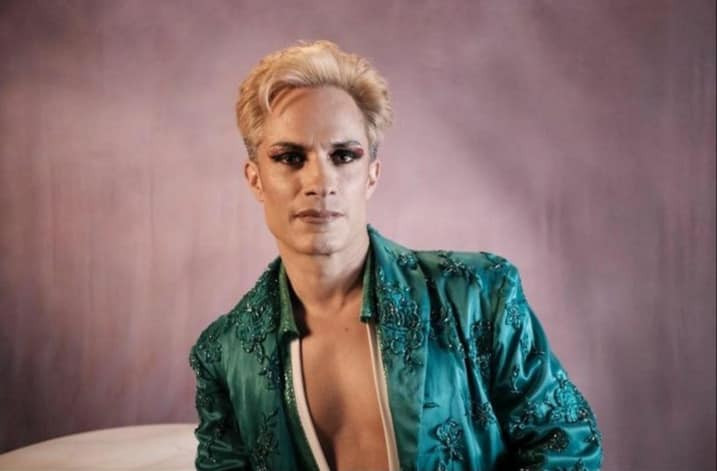
Last week Prime Video released "Cassandro, El Exótico", a biopic about the American-born Mexican luchador Saúl Armendáriz --played by Gaél García Bernal-- a former NWA World Welterweight and UWA World Lightweight Champion. The film had its world premiere at the Sundance Film Festival last January 2023 and was directed by Roger Ross Williams.
From the beginning, "Cassandro" shows the journey --a real coming-of-age story-- of Saúl, aka "The Mole," from an amateur fighter to his consecration as a professional wrestler and his conversion to "Cassandro, El Exótico."
That journey began in the '80s in Ciudad Juárez and El Paso, two twin cities divided by the Texas-Mexico border. Born in El Paso, Texas, Saúl grew up on both sides of the border, spending time in Río Grande, or Río Bravo, depending on which side of the border you are.
And just as Saúl crosses the border changing sides with extreme naturality, a double life is also portrayed from the beginning, that of the fighter, Cassandro, and that of Saúl, the son, in his family and private world. Saúl is the partner of his mother Yocasta, with whom he shares some jobs to survive, such as mending clothes and washing clothes for clients, among others that Saúl also does, such as washing cars. Mother and son work together in small jobs to survive, having only each other.
Among them, more than the bond between a mother and a son, the fraternal relationship between two best friends, life partners, is portrayed in the face of any adversity that life may present. Jocasta is a strong and noble woman who understands better than anyone who her son really is, and who accepts and respects him like no one else. She is the one who wishes "that he would one day find a good boy to love."
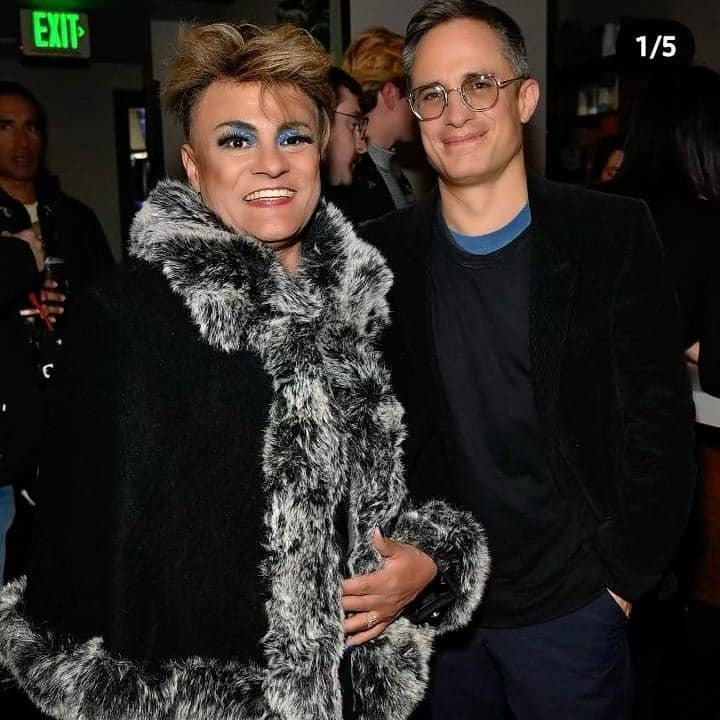
Left out of the scene is his father, an absent man, married to another woman and family, whom Saúl sees intermittently during his childhood, when he visits them and with whom he discovers and enjoys "Mexican wrestling" until Saúl comes out of the closet at fifteen years old. This abandonment is a central theme in both Saúl and Yocasta's lives, as Saúl grows up as the bastard, the son of his mother --"the other woman"-- who is now full of resentment, bitterness and sadness for never having managed to be the chosen one.
Within that mother-related and feminine world --between handmade patches and soap operas-- Saúl goes about his day. His mother occupies all of his concerns, his time, and his dreams, like that house with a heart-shaped pool and beautiful yellow kitchen that he wants to buy for her, with the money he earns in his nightly amateur fights, in an improvised neighborhood club on the other side of the border. Over there, every night he becomes El Topo (The Mole), the first moniker Saúl got as a fighter. As El Topo, Saúl always loses against Gigantico, a bloated brute with no talent or charisma who always is the public's favorite.
Saúl is not the prototype of the typical fighter (strong, athletic, tough), the macho represented in the Mexican culture of the 80s. He represents another breed of fighters; "the exotic ones", those who step into the ring as an "offering" to feed the champions, becoming the laughing stock of the public.
The exotics are the usual losers of choreographed combats, vital flops who learn and play their roles as characters destined to make their rivals shine. The exotics are as necessary as the tough and strong fighters because they are the machos' antagonists, their arch-enemies due to their supposed weakness and faked, exacerbated femininity. Los exóticos suffer the obligatory fate of always being the losers, those who will never manage to win the battle, which in Lucha Libre means the public's love and respect.
"In Lucha Libre, an exótico is a luchador (male wrestler) fighting/performing in drag. The exótico's movement vocabulary is campy, often silly, and seldom dignified." According to anthropologist Heather Levi.
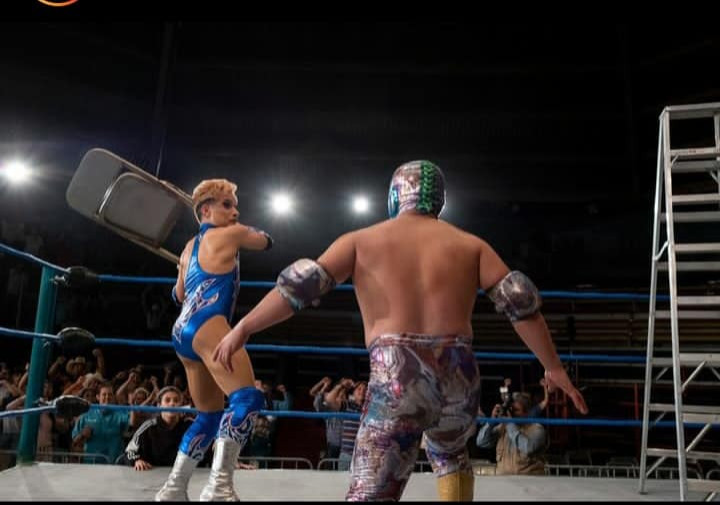
That is the nature of Mexican wrestling. It's not really about who makes the best moves, who is really strong and brave under a mountain of hormone, steroid, and anabolic-inflated muscles. Wrestling in Lucha Libre is the perfect mix of acrobatics, sport, theater and spectacle.
As in a Roman Latin circus, Mexican wrestling is about mobilizing the public, winning their affection, their admiration and becoming people's favorite. But only the one who best plays his role and character will be the victor. And for that, any resource is possible, even the cunning of the weakest and cowardly, something that Mexican culture, machismo culture, does not usually forgive.
"Exóticos, who first emerged in the 1940s, evolved to be male fighters dressed in drag who served as a contrast to the macho main events. But Armendáriz, a gay man, wanted his character, Cassandro, to be more than that. He wanted to spar with luchadores on equal ground." says an article released by apnews.
Exótico also means something foreign, distant and different from what is taken as a reference. That is why fighters like Cassandro are not heels or faces, they are exóticos. The exotic wrestler is different from the hero, the macho, the one that Latin cultures praise as the possessor of successful masculinity.
Saúl knows --when his female trainer proposes to him to be "an exotic"-- that becoming one won't be a great promotion from being "The Mole" (a nearly-blind, puny animal that lives underground). The transition into an exotic fighter will also condemn him to being a perpetual loser. "Exóticos always lose," says Saúl after a hard training set with her new female trainer. Losing is something Saúl won't accept.
"They don't let exóticos win," Armendáriz replies. "I want to flip it." Gael García Bernal says in the movie.
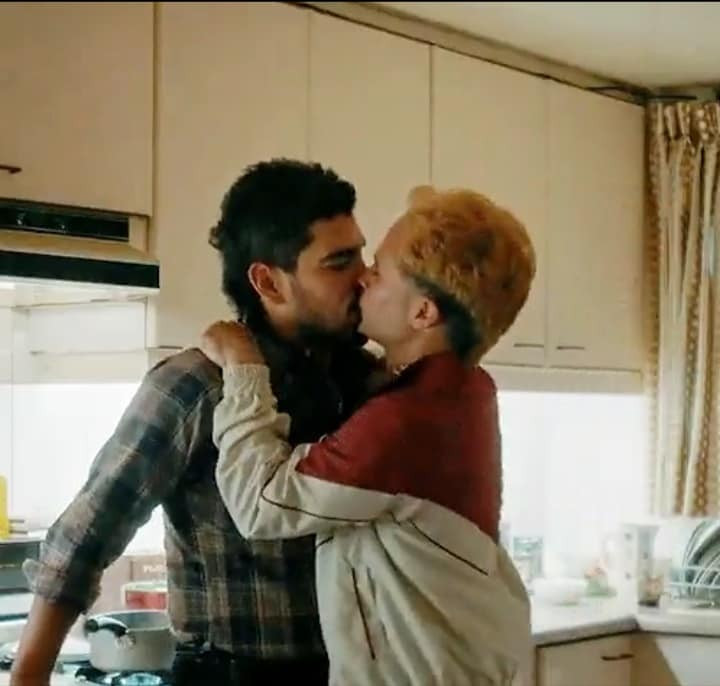
"Cassandro" in the end is a film that talks about the difficulty of being gay in a Latin culture. And, although Cassandro exists as a wrestler, he hides under the surface of the dominant culture just like his other persona, The Mole, who lives underground. Saúl's adversaries are not other wrestlers, but his fate of living under a cover. Saúl discovers that, although he does not have the skills, strength and toughness to be an alpha fighter, he can be an alternative figure who can conquer the public with his glamor, sensuality and his flamboyant nature. Saúl understands that being exotic, his otherness can also be the key to his success. From a telenovela in that other world --his private feminine and maternal world-- he gets his new moniker.
After Saúl becomes Cassandro, he manages to conquer the hyper-masculine world of wrestling with the help of his manager Lorenzo, who sees in him a new star and also a business. Lorenzo --played by Joaquín Cosío-- leads him to success along with his assistant (and drug dealer) Felipe, played by Bad Bunny, with whom he suggests a platonic romance during the film and who is in charge of "entertaining" Cassandro in his winning streak, all the way to Mexico City's arena El Palacio de los Deportes.
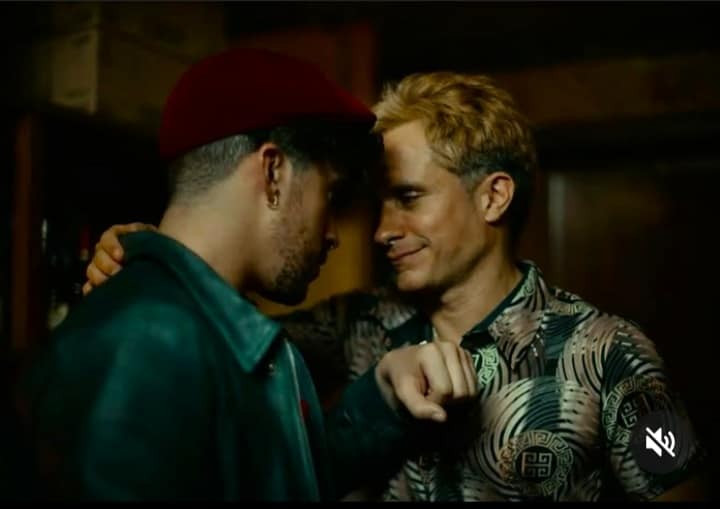
"That is, until Armendáriz arrived on the scene in the late 1980s. An out gay man and talented wrestler (he became the first exótico to win a Universal Wrestling Association championship in his weight class in 1992), his athleticism combined with his gifts as an entertainer won him a huge fan base, turning the jeers to cheers and making him a gay role model in the process." says an article from Slate
After reaching the peak of success and losing everything in his private sphere, in Cassandro's life remains the love of the public, consecration and the possibility of being accepted in the world of males without ceasing to be himself. The film closes when Cassandro goes on "Emperadores", the TV interview show of wrestling legend Hijo del Santo, who plays himself in the movie. And the invitation to this program represents the goal of Saúl's search for acceptance his entire life, first from his father, then from the world of wrestling, the public and the dominant culture, that Gerardo, his lover.
In that show, Saúl's legacy is also materialized, the open door that his struggle engendered in Mexican culture, when a fan, a young man, expresses his admiration and gratitude, telling him that thanks to him, he has recently "come out" and is accepted by his father, the one prize that Saúl never achieves.
© 2025 Latin Times. All rights reserved. Do not reproduce without permission.





